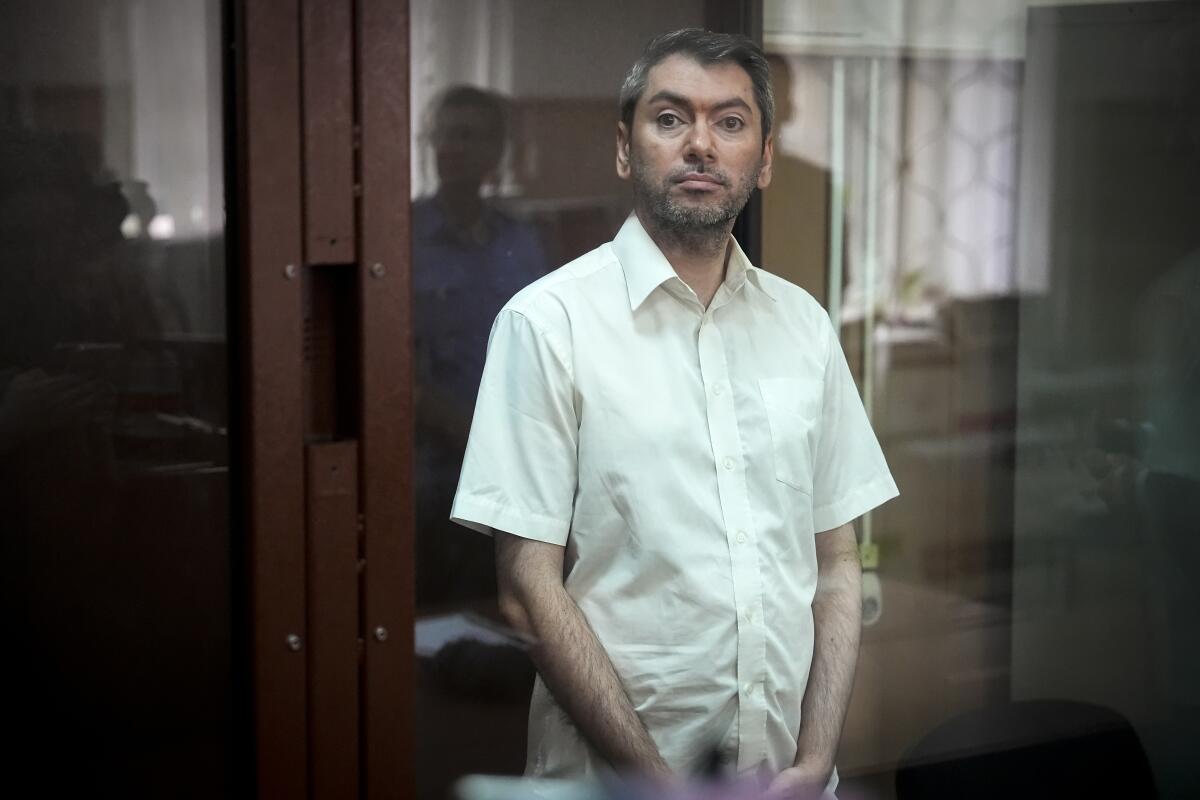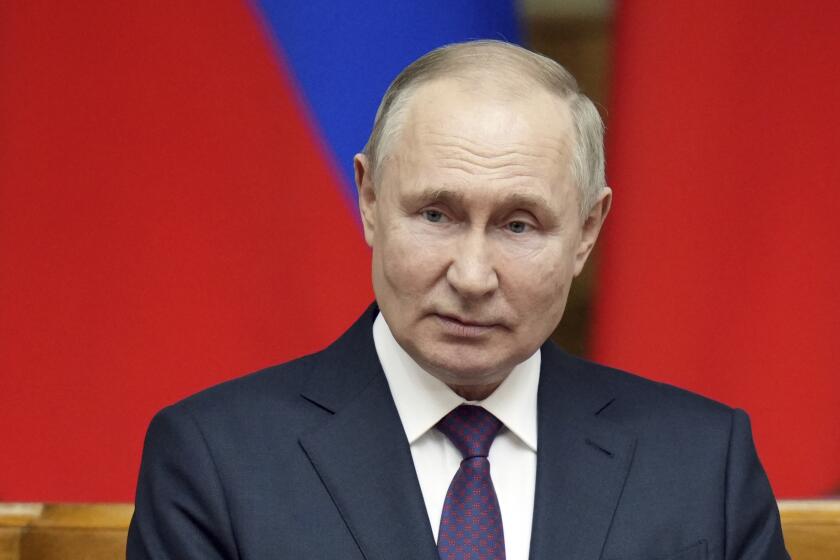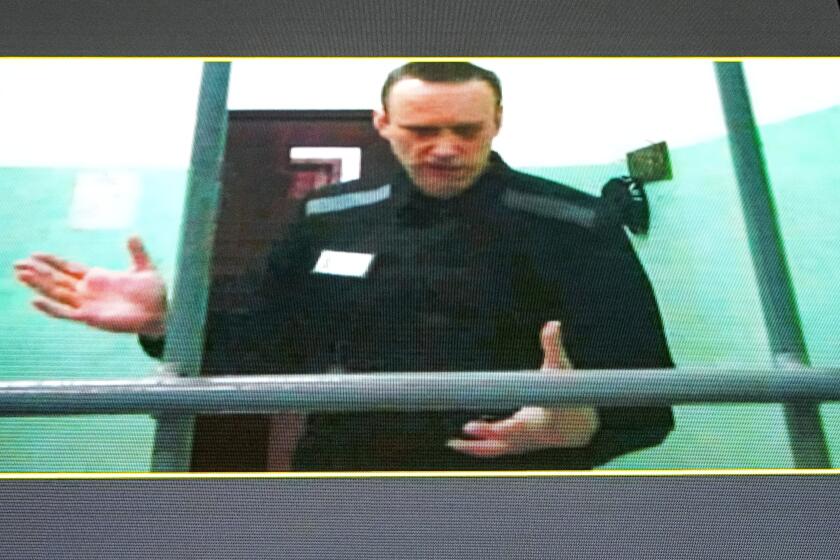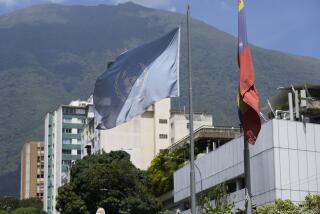Russia shuts down human rights group that preserved the legacy of Nobel laureate Andrei Sakharov

- Share via
TALLINN, Estonia — Separate Russian courts on Friday ordered the liquidation of a human rights organization that preserved the legacy of Nobel Peace Prize laureate Andrei Sakharov and the arrest of a prominent election monitor, in the latest moves in a widespread crackdown on dissent.
Sakharov, who died in 1989, was a key figure in developing the Soviet Union’s hydrogen bomb program but later become renowned for his activism in promoting human rights and freedom of conscience. He was awarded the Nobel Prize in 1975 but was not allowed to travel to Norway to receive it. In 1980 he was sent into internal exile, which lasted six years.
The organization founded in his honor operated the Sakharov Center museum and archives in Moscow. Authorities declared it a “foreign agent” in 2014 and this year ordered the eviction of the center from its premises.
Russian authorities increase crackdown on human rights groups, and President Vladimir Putin makes ‘treason’ punishable by life in prison.
The Moscow City Court ordered the organization liquidated, which means it must stop operating, at the request of the Justice Ministry, Russian news agencies reported.
Separately, the Basmanny District Court in Moscow ordered the detention of Grigory Melkonyants, the leader of the Golos independent election monitoring group. He was accused of being involved with an “undesirable” organization, and faces a possible six-year prison sentence, his lawyer Mikhail Biryukov said.
People involved with an organization that has been labeled “undesirable” by the Russian government can face criminal charges. Golos itself has not been given that label, but it was once a member of the European Network of Election Monitoring Organizations, which was declared “undesirable” in Russia in 2021.
Mikhail Zugar, a co-founder of Russia’s last independent TV station, argues in his book ‘War and Punishment’ that his country must confront its imperialist culture.
Independent journalists, critics, activists and opposition figures in Russia have come under increasing pressure from the government in recent years, which has intensified significantly during the conflict in Ukraine. Multiple independent news outlets and rights groups have been shut down, labeled foreign agents or outlawed as undesirable. Activists and critics of the Kremlin have faced criminal charges.
Golos was founded in 2000 and has since played a key role in independent monitoring of elections in Russia. Over the years it has faced mounting pressure from the authorities. In 2013, it was designated a foreign agent — a label that implies additional government scrutiny and carries strong pejorative connotations. Three years later, it was liquidated as a nongovernmental organization by the Justice Ministry.
The authorities have also banned popular social media platforms such as Facebook, Instagram and X, formerly known as Twitter, and have targeted other online services with hefty fines.
Prosecutors are asking a Russian court to sentence opposition leader Alexei Navalny to a further 20 years in prison, according to one of his allies.
On Thursday, a Russian court imposed a 3 million ruble ($32,000) fine on Google for failing to delete allegedly false information about the conflict in Ukraine. The move by a magistrate’s court follows similar actions in early August against Apple and the Wikimedia Foundation that hosts Wikipedia.
According to Russian news reports, the court found that YouTube, which is owned by Google, was guilty of not deleting videos with incorrect information about the conflict — which Russia characterizes as a “special military operation.”
More to Read
Sign up for Essential California
The most important California stories and recommendations in your inbox every morning.
You may occasionally receive promotional content from the Los Angeles Times.













